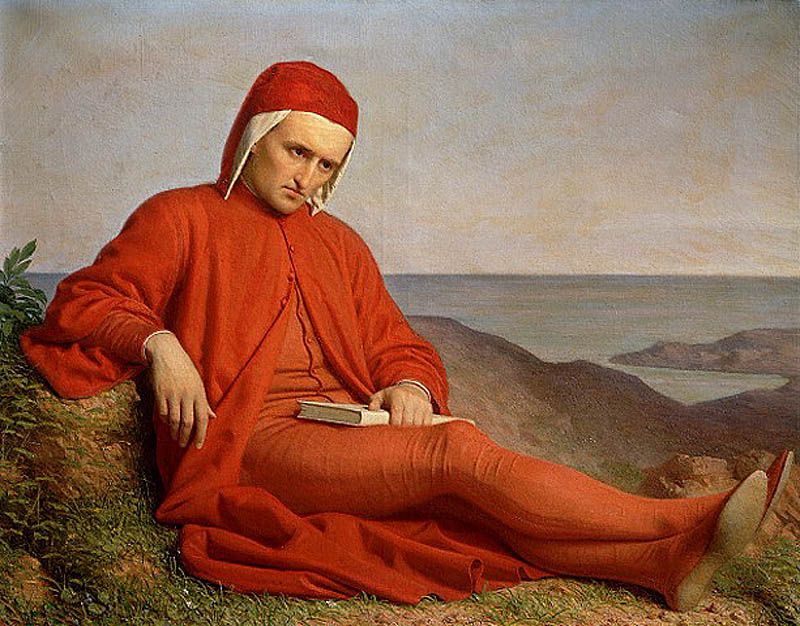Dante Alighieri (1265-1321)
Dante was born in Florence in 1265 during civil strife between two rival factions: the Guelfs and the Ghibellines. Dante’s family was loyal to the Guelfs, who fought to support the Pope. The Ghibellines fought for the interest of the Holy Roman Emperor. At nine, Dante met Beatrice Portinari, whom he instantly fell in love with. Though he never married Beatrice, instead marrying Gemma Donati, Beatrice would be Dante’s muse for the rest of his life. Dante would dedicate much of his early poetry, written in the vernacular dialect of the streets of Florence, to Beatrice. The poems called il Dolce Stil Nuovo were primarily love poems dedicated to Beatrice. The most significant of these would be La Vita Nuova (1293), written in the vernacular, a sweeping ode to Beatrice that marked a turning point from using Latin to using vernacular Italian. It is often viewed as a precursor to the Divine Comedy.

Against the violent political backdrop of his day, Dante entered into politics, holding various offices in city government. However, in 1301, Dante’s political rivals gained power, and the poet was exiled from Florence, never to return to his beloved city.
Dante circulated around the courts of northern Italy, serving various counts, dukes, and lords in Verona and ultimately in Ravenna, where he died in 1321. Some historians suggest Dante traveled as far as Paris or Britain during his exile.
While in exile, Dante began composing what is regarded as the quintessential medieval epic poem: La Divina Commedia — the Divine Comedy.
La Divina Commedia is written in a complex poetic style called terzina and is layered with classical and Christian symbolism. Dante’s vision of the afterlife is populated with saints and sinners from classical mythology and the Bible, as well as Dante’s medieval contemporaries from Italy and Europe.
The Comedy begins:
—Nel mezzo del cammin di nostra vita
mi ritrovai per una selva oscura
ché la diritta via era smarrita
—In the middle of the road of our life
I found myself in a dark forest
where the straight path was lost
Dante then begins his journey in The Inferno. Guided through hell by the Latin poet Virgil, Dante encounters damned spirits and witnesses the ironic punishments to which the unrepentant are eternally condemned.
In the second part of The Comedy, Purgatorio, Dante emerges from the frozen floor of hell. He ascends to the mountain of purgatory, where the repentant sinners are purified and cleansed with fire to prepare them for their final ascent into heaven.
In the third and final part of The Divine Comedy, Paradiso, Dante is reunited with Beatrice, who acts as his guide. In heaven, he encounters the saved and the saints. Finally, at the culmination of his ascent, he is in the presence of God, which he describes as “l’amore che move il sole e l’altre stelle,” or “the love which moves the sun and the other stars” (Paradiso, Canto XXXIII, 145).
